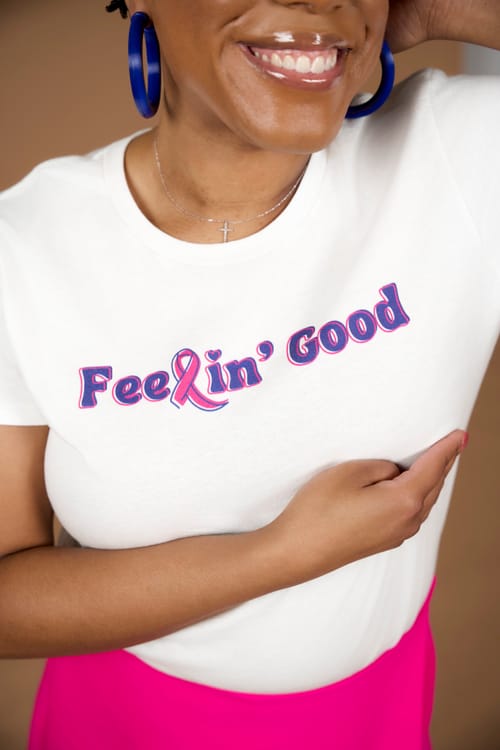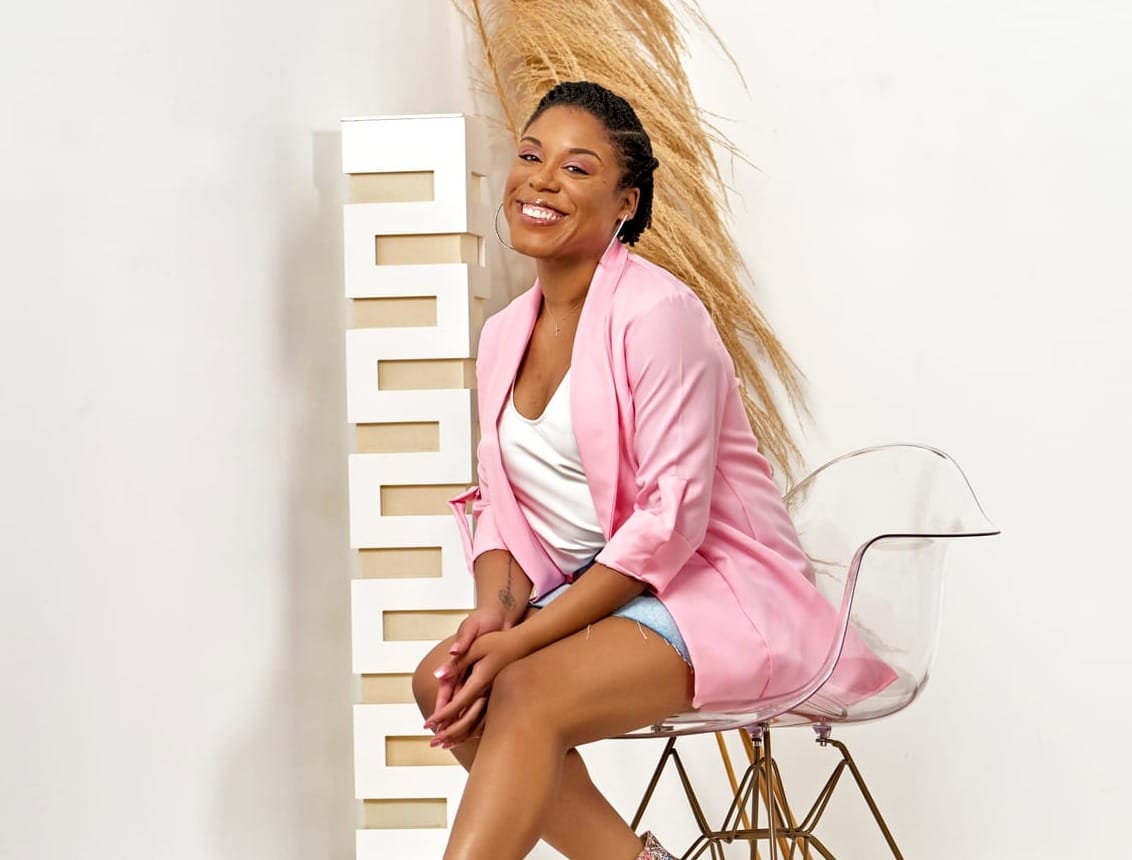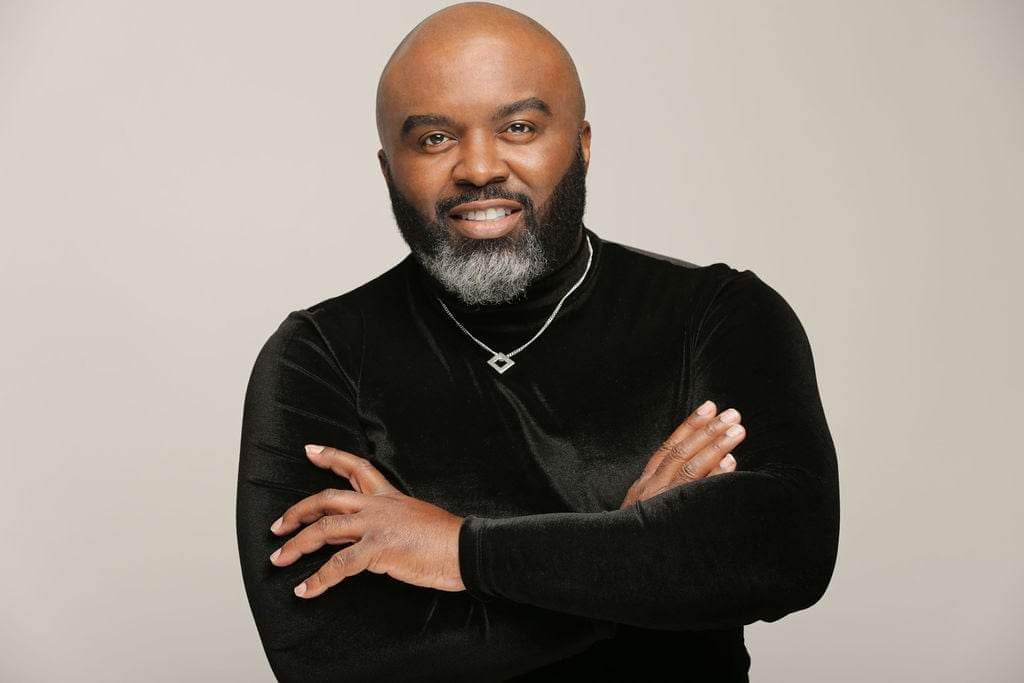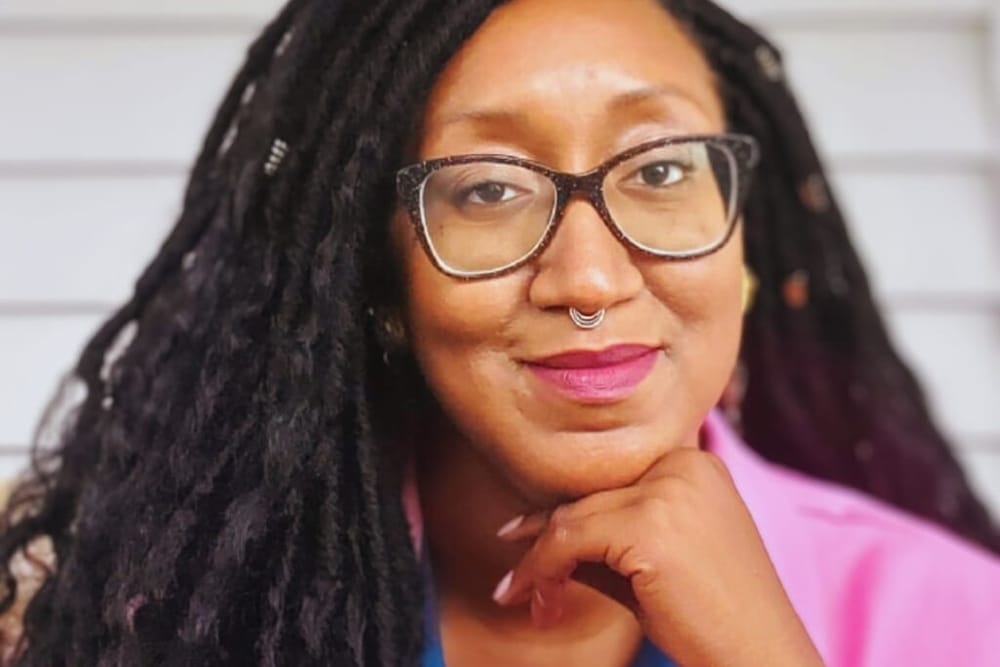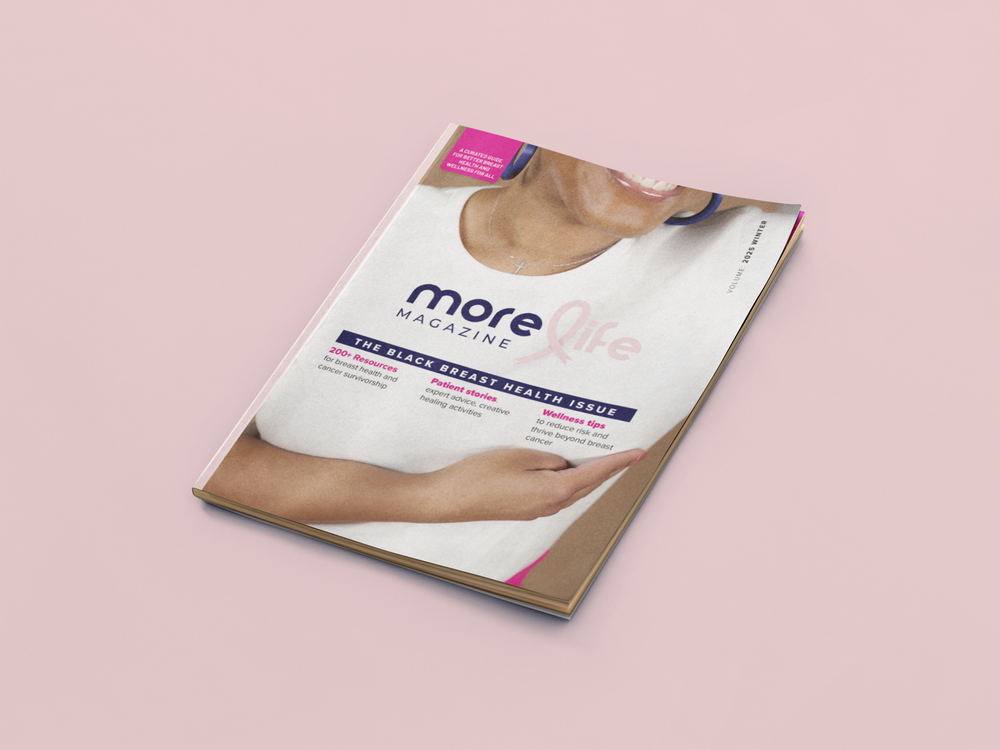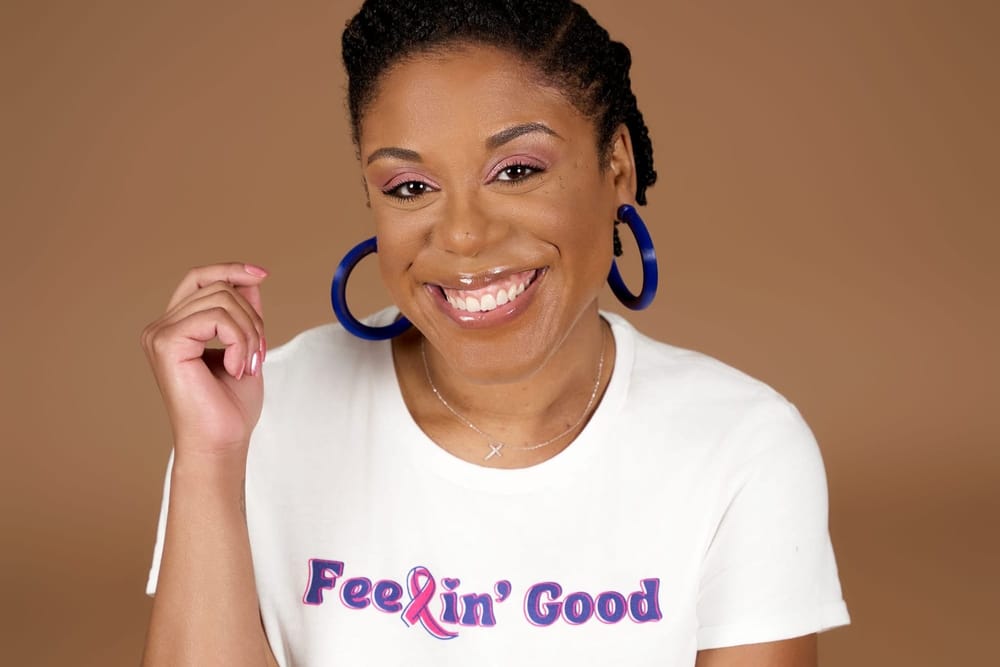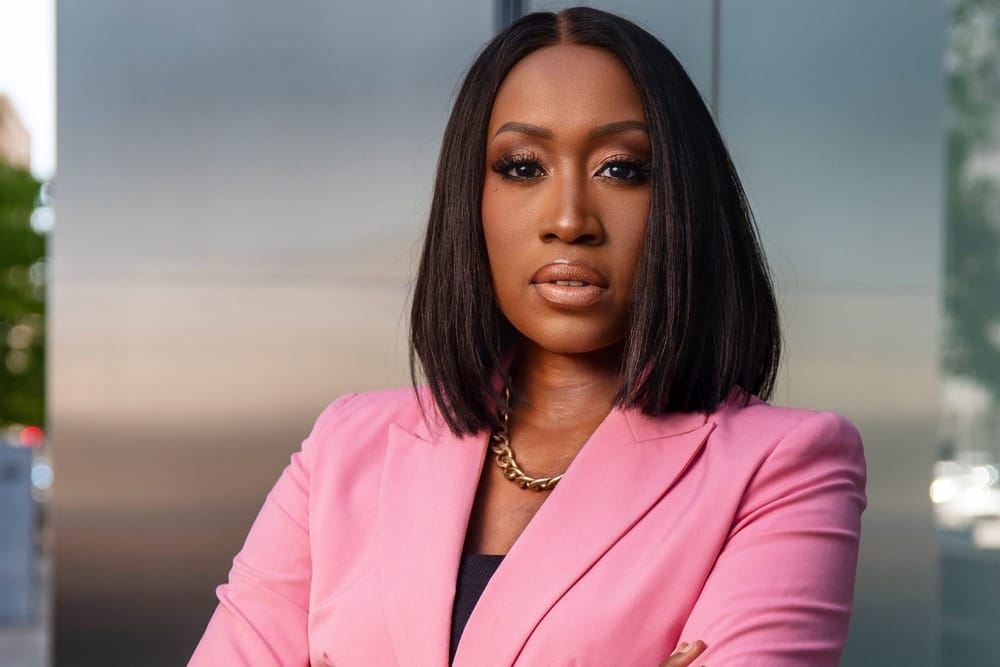Interview by Jasmine Dionne Souers
When we think about breast cancer, the image that typically comes to mind is a woman undergoing treatment. However, breast cancer does not discriminate, and men, too, are at risk. Travis Douglas, an award-winning hair stylist, was living a fulfilling life filled with love, laughter, and a passion for his work when his life took an unexpected turn in 2023.
“I noticed a lump in my right breast while taking a shower. It seemed like it magically appeared because I promise you I hadn’t felt it before,” he recalls. At the time, breast cancer was the furthest thing from his mind. Travis knew breast cancer could occur in men, but it never crossed his mind that he could be one of the rare cases.
Male breast cancer is indeed rare. According to the American Cancer Society, about 1 in 726 men will develop breast cancer in their lifetime. For Black men, the statistics are even more concerning, as studies have shown they are more likely to be diagnosed at a later stage, making treatment more challenging and outcomes less favorable. The lack of awareness and education around male breast cancer contributes to this disparity.
For Travis, the journey to diagnosis was not straightforward. He initially mentioned the lump to his doctor, but it slipped his mind during his appointment. It wasn’t until a month later, when his partner nudged him and caused pain, that he remembered the lump and scheduled another appointment. This time, he underwent an ultrasound and mammogram, which led to the shocking revelation: Travis had breast cancer. “It was like a big door with hollow walls had shut,” he says, describing the moment he received the news. “I was in shock because, in the back of my mind, I couldn’t believe it was happening to me.”
Travis’s treatment journey began with a mastectomy followed by chemotherapy. The physical toll of chemotherapy was difficult. He faced side effects that many associate with female breast cancer patients, such as hair loss, fatigue, and weight changes. “Watching my beard literally come out one morning in my hand was heartbreaking. My beard was my pride and joy,” Travis shares.
Beyond the physical, the emotional impact was profound, particularly around body image and intimacy. As a gay man, Travis also navigated concerns about how his changing body would affect his relationship with his partner, a topic that is often overlooked in discussions about male breast cancer.
Despite these challenges, Travis’s faith and support system have been his anchors. He speaks passionately about how his family, friends, and clients have rallied around him, providing not just emotional support but also financial assistance during his time of need. “I used to be the one always helping others, so it felt strange and humbling to be on the receiving end,” Travis reflects. His best friend even set up a GoFundMe, raising $5,000 to help cover expenses during his recovery.
While Travis’s story is one of survival, it is also one of advocacy. He has become a vocal advocate for male breast cancer awareness, particularly within the Black community. He emphasizes the importance of early detection, self-examinations, and understanding one’s family health history. “Dispel the stigma around men experiencing breast cancer at different ages,” he advises. “Perform self-examinations for early detection. Familiarize yourself with your family’s health history for better awareness and prevention.”
Travis’s experience highlights the critical need for more education and resources tailored to men facing breast cancer. The medical community often overlooks the unique challenges men face during breast cancer treatment, from body image issues to the impact on relationships. Moreover, the lack of representation in breast cancer support groups can leave male patients feeling isolated. Travis found solace in the Male Global Breast Cancer Alliance Facebook group. He also connected with a local chapter of The Breasties where he became the first male member. These women provided invaluable support and information, helping him navigate the complexities of treatment and recovery.
As we continue to raise awareness about breast cancer, it’s crucial to include the voices of male survivors like Travis Douglas. His story is a powerful reminder that breast cancer affects everyone, regardless of gender. It also underscores the importance of inclusive health care that addresses the needs of all patients, ensuring that no one feels alone or unsupported in their journey.
In Travis’s words, “I survived it.” His survival is not just a personal victory but a beacon of hope and a call to action for more inclusive breast cancer education and support. As we move forward, let us remember that breast cancer does not discriminate, and neither should our efforts to fight it. Let Travis Douglas’s story inspire us to advocate for better awareness, education, and resources for all men affected by breast cancer, particularly within marginalized communities where the need is greatest.
We want your feedback!
Did you learn something helpful or find a new resource? Tell us how we're doing by completing a short 5-question survey and get the chance to win a $25 Amazon gift card.
Take the Survey